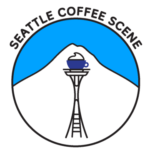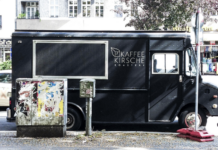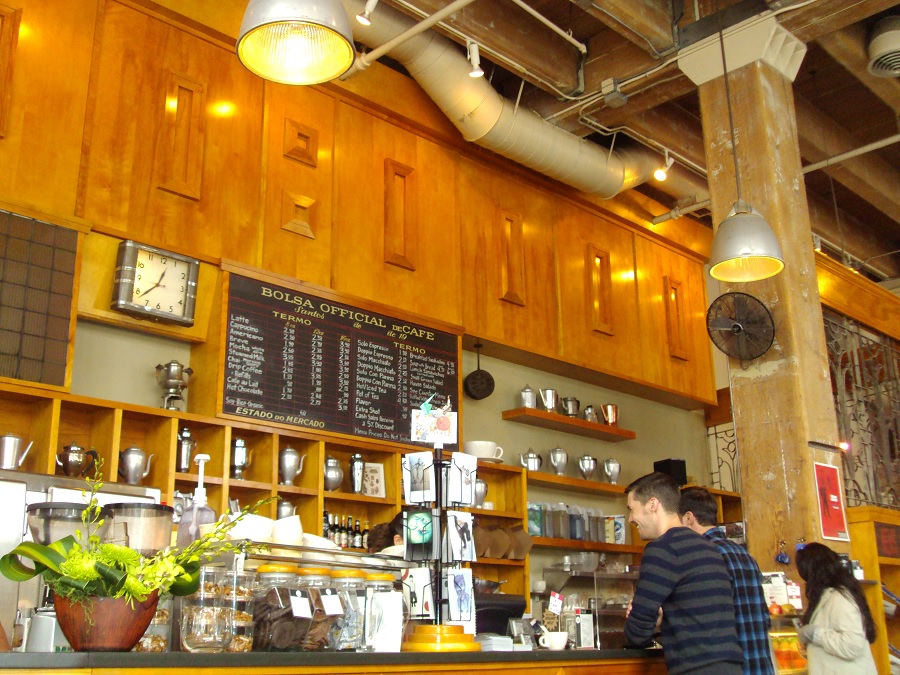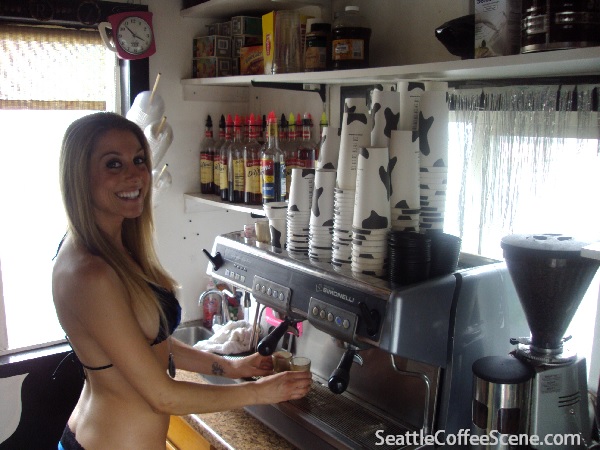Where Do Coffee Shops Get Their Beans?
A Buyers Guide
Coffee shops need coffee to sell. After all, one can’t imagine a coffee shop without a variety of coffee beans.
Coffee originates outside the US and Europe. Generally, it is grown in a band that is at a lower longitude than the US. However, Hawaii grows coffee because of its rich lava soil and climate.
Therefore, it needs to be imported to United States, Europe, and Australia. So, where do coffee shops get their beans?
In this post, we’re going to discuss where coffee shops get their beans. So keep reading if you are thinking about opening a coffee shop or start selling coffee online.
Where Do Coffee Shops Get Their Beans?
Wholesale Coffee Roasters
Most retail coffee shops order their coffee beans through a wholesale coffee roaster. However, wholesale coffee roasters can also have retail coffee shop locations too.
Wholesale coffee roasters sell their roasted coffee at wholesale prices to other coffee shops.
For many coffee shops, this is the most efficient and easiest way to get started. They treat their coffee as other inventory products like milk, sugar, and food. This efficiency allows coffee shops to focus on their prime goals – to serve as many customers as possible.
There are many wholesale coffee roasters in the United States and Europe. I recommend finding a local wholesale coffee roaster to work with and be your coffee bean supplier.
Coffee Shops Roast Their Beans
Many coffee shops decide to roast their beans. Roasting your own beans has some pretty good advantages. First, it allows you to directly skip the costs of the wholesale roaster. It also allows you more freedom to experiment with the type of roasting profile you would like to provide your customer.
Having unique coffee blends can lend well to your specialness as a coffee spot. But roasting your beans comes with some additional requirements that should be considered before you jump in. I will be talking about that in a second.
Green Coffee Suppliers
Green coffee brokers or supplies are an important segment of the coffee chain. Their expertise in transporting and managing the storage of green coffee beans creates makes the coffee market more efficient. They are the people who connect the coffee farmers and coffee consumers. In other words, green coffee brokers help make the coffee world go round.
If you decide to roast your coffee beans, you need to get your hands on green coffee brokers that can provide you with beans. In Seattle, some big and small coffee brokers bring in particular coffee from around the world. For example, you may have a more prominent green coffee broker who brings in coffee from multiple coffee-growing countries or regions. On the other hand, you might find some green coffee brokers specializing in only one region, one country, or even one collective of coffee farms.
Either way, like a coffee shop, you will want to start networking earlier just in case you decide to get into the coffee roasting arena.
Securing Coffee Beans Through Direct Trade
Direct trade is beneficial for the roaster and the farmer. Here the green coffee broker is cut out of the deal. That means the roaster can get good quality coffee at a more reasonable price. The farmer is also happy because a reasonable price for the roaster is also a higher price for his coffee.
Direct trading requires well-seasoned relationships between the roaster (usually thousands of miles away) and the coffee farmer. Language and cultural barriers need to be bridged to maintain a healthy and mutually beneficial business relationship. It requires lots of traveling and the development of trust. However, once the trust is established, the roaster-farmer relationship can last for a generation.
Experienced coffee professionals do direct coffee trading. As a roaster, you need to know what type of coffee you are getting and if the quality of coffee is good. This often takes years of experience. It can be easy for the inexperienced retail coffee shop owner to waste thousands of dollars traveling, meeting farmers, securing a crop, shipping, storing, and finally getting your hands on quality green beans.
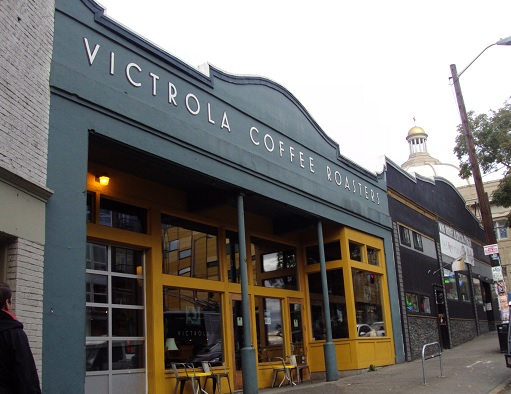
Should You Roast Your Coffee Beans?
I like the idea of coffee shops roasting their beans. However, the decision to roast your coffee beans should fall on a couple of factors.
First, do you have the physical space? Roasting your coffee beans requires installing a coffee roaster that is minimally the size of a vertical washer and dryer set. It also needs to be installed in a safe fire-resistant location with a flue that expels the exhaust.
Second, do you have the money to purchase the coffee roaster, which can cost $10,000 to $150,000?
Finally, do you have the expertise to roast the coffee? Roasting coffee in a manner that takes delicious takes training and practice.
Steps to buying wholesale coffee
If you are starting a coffee shop and are interested in getting coffee beans, there are a few preliminary steps you should take:
Create a business structure
This essentially means setting up your business legally. You can usually do this by filling out an application and paying a fee. Your state will send you your certificate of formation along with a variety of numbers that you will need to keep.
Get a business license
Get a business license in your city that allows you to do business legally. This requires you to establish an account with your local city government and receive your annual license.
Get a resellers license
In addition to your regular business license, you typically need a reseller’s license. This allows you to purchase your coffee wholesale (without taxes) to sell it. It is incredibly beneficial (and often requires a reseller’s license or seller’s permit).
Open up an account
After deciding which wholesale coffee roaster to work with, you will need to introduce yourself to them and finally open an account. This establishes you as one of their wholesale accounts and allows you to order coffee from them. Each coffee roaster will have its own terms and conditions that you will want to be familiar with.
Where Do Coffee Shops Get Their Beans?
How to Choose Your Coffee Roaster?
Every coffee shop owner will have their reasons for deciding on which coffee roaster to establish accounts with. Generally, however, many retail coffee shops will primarily base their decisions on the following criteria:
Quality:
The quality has to be spot on to run your business. This is also true for most coffee shop owners. You wanted to serve the best coffee you can get. In competitive environments like Seattle, quality is essential.
Consistency:
In addition to quality – the coffee needs to be consistent. You have to have consistency when it comes to quality. This isn’t always easy because we talk about organic coffee crops that change from season to season.
Taste:
Your coffee needs to taste great, right? Many factors impact your coffee, including the country of origin, how it was processed and roasted – and any blending of other beans.
Prices:
Your coffee prices have to be reasonable for the coffee you get. Remember that great coffee is more expensive. This means you have to factor these costs into your pricing.
Shipping Costs:
Coffee is heavy. Shipping costs can add up very quickly. So, while you might like a coffee roaster in New York, but you are setting up a coffee stand in Oregon, you will run into thousands of dollars of additional shipping costs every year.
Variety of Blends and Origins:
Every coffee roaster has its type of coffee offerings. There are countless combinations of coffee blends that you can choose from. But having numerous single-origin coffees and blends does not make financial sense for most coffee roasters. Typically, coffee roasters will offer their espresso blend, single-origins, and decaf blends. You have to be satisfied with their product offerings.
Before ordering From a Wholesale Roaster
Before ordering your coffee from a wholesale roaster, I would strongly recommend tasting their coffee. I would visit them directly and attend a coffee cupping or coffee tasting. Many wholesale roasters regularly schedule open tastings and cuppings that you should take advantage of. They get tons of calls for samples, so you might need to pay for shipping and nominal coffee fees, but it’s worth it.
Meet your coffee roasters:
I strongly recommend that you meet with your potential coffee roaster. Talk to them and ask about their beans, their values, and their objectives with their coffee roasts. Ask about their capacity levels. Perhaps you only need 5 lbs of coffee a week – or you need 500 lbs of coffee a week – can they manage this?
Consider shipping costs
As mentioned earlier, your shipping and coffee delivery costs can add up. That is why I strongly recommend that you look for a local roaster first. Imagine the cost of shipping hundreds of pounds of coffee to your retail coffee shop every week?
Wholesale Coffee Roasters To Buy Coffee From:
We have some fantastic coffee roasters here in Seattle and the surrounding region (Pacific Northwest and Pacific Coast). Let me list just a few coffee roasters that you might be interested in. These are all coffee roasters that I have visited or tried myself. So consider taking a moment and looking them up.
- Conduit Coffee Roasters
- Zoka Coffee Roasters
- Caffe Ladro
- Lighthouse Coffee Roasters
- Olympia Coffee Roasters
- Broadcast Coffee Roasters
- Fulcrum Roasters
- Street Bean Coffee Roasters
- Seven Coffee Roasters
- Caffe Vita Coffee Roasters
- Herkimer
- Slate Coffee Roasters
- Madrona Coffee Roasters
- Fonte Coffee
- Espresso Vivace
- Caffe Appasionato
- Victrola Coffee Roasters
Where Do Coffee Shops Get Their Beans?
As you can see, there are a few elements to think about when deciding where to get your coffee beans. Each coffee roaster and coffee shop has its niche in the marketplace. My recommendation is that you visit and get to know your coffee roasters. Even if you prefer other roasters, the knowledge you gain from sitting down with a coffee roaster is priceless.
